When Russian tanks rolled toward Kyiv on 24 February 2022, Lesia Lytvynova and her husband Vladyslav Urban didn’t hesitate, not for a second. They stood in recruitment lines until darkness fell the next day.
“What else could we do?” Lesia says.
Five children waited at home. Three are still minors. Yet both parents chose the battlefield.
Lesia Lytvynova, mother, war veteran, and co-founder of the charity Svoyi, traded her kitchen for a rifle. Vladyslav, who had already fled his Donetsk home when Russia’s war began in 2014, became a sapper. Neither had military experience.
When military officials discovered they were parents, they attempted to separate them. “Couples shouldn’t serve together,” commanders insisted. “Your children need at least one parent alive.”
Lesia’s response cut through the bureaucracy: “If we don’t stop them now, our children will have to fight them again.”
Side by side in the 207th Battalion’s engineer platoon, they served until May 2023, when Russian fire near Bakhmut wounded them both. Now demobilized, Lesia has returned to volunteering.
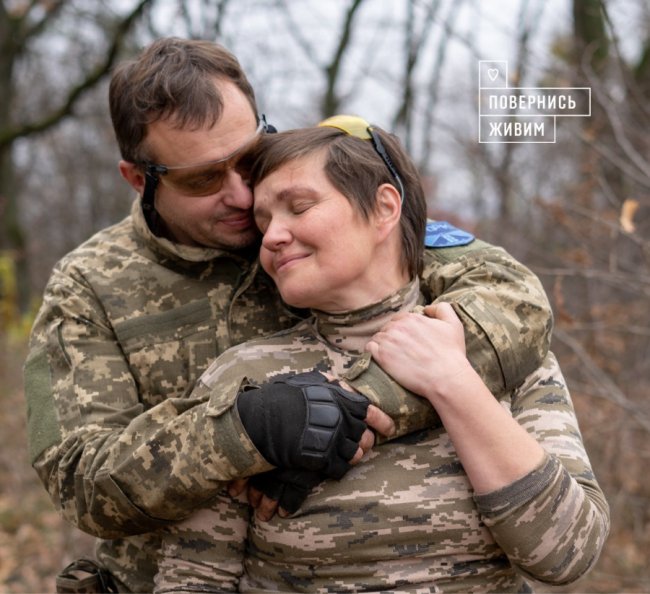
In May 2024, Lytvynova penned this account of Ukrainian motherhood under fire:
I don’t even know how to tell you what it’s like to be a mom in Ukraine.
Being a mother here means singing lullabies while standing on a rickety stool with a noose around your neck – yet somehow finding joy as the world disintegrates around you.
It’s the obsessive checking for a single “+” message in Signal that your daughter-in-law installed. Each plus sign becomes a novel you read again and again, inventing meanings between the lines.
It’s giving birth in a bomb shelter while air raid sirens wail, sending the baby’s first photo to a husband who hasn’t been heard from in three days. Still, you believe you’ll become a family of three because faith is all that remains.
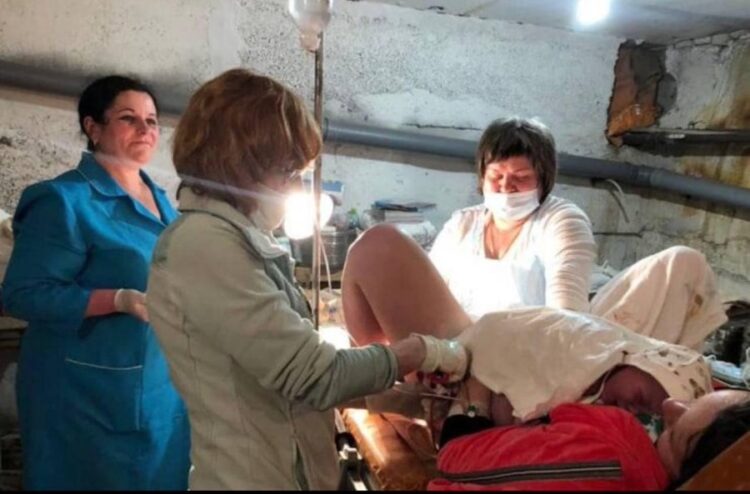
It’s running from position to position under artillery fire, screaming to the sky: “Not today, God! It’s my child’s birthday!” Hours later, you send voice messages instead of video calls because your face – covered in dust and terror – would reveal too much.
It’s embracing your son’s battle-brothers at his funeral, these bearded men and hollow-eyed women. You cling to shoulders that smell like him, begging them to survive as you promise to live for both of you now.
It’s buying ice cream for your adult daughter at Kramatorsk station during the hour before your train leaves for the front. You take ridiculous selfies and tell bad jokes, never admitting you’re actually saying goodbye before a major assault with slim chances of return. Let her remember you smiling. Let her be a child for sixty more minutes.
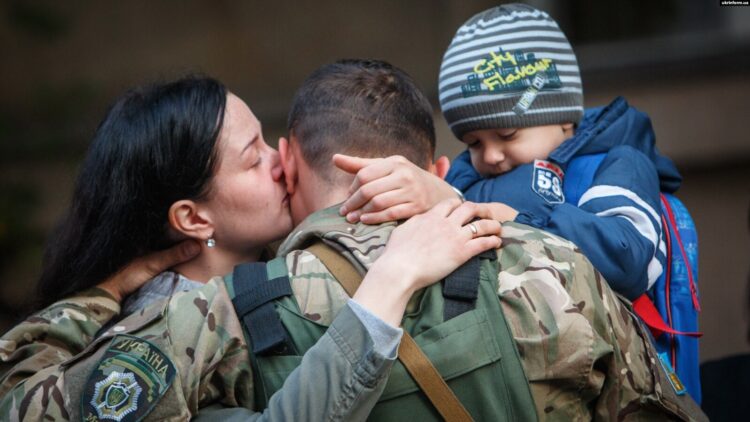
It’s fighting bureaucracy for the right to have your fallen husband’s child, organizing conferences, and rewriting legislation while ignoring your own grief because there’s no time for it. The wall you leaned on is gone, but his dream of children remains. And so does yours.
It’s talking through panic attacks with your child in another city whose bomb shelter is too far away. Their only anchor is your voice drowning out air raid sirens: “Don’t be afraid, my dearest. I’m with you. That damn MiG will land soon, and you can sleep again.”
It’s hugging your child so tightly that when rescuers finally reach your body under rubble, they cannot separate you. Those hugs are stronger than the walls that failed to protect you.
It’s inhaling your newborn’s scent while crying with both joy and terror. How do you prepare this fragile life for a world that no longer resembles the one you knew? How do you carve space for happiness in a landscape of destruction?
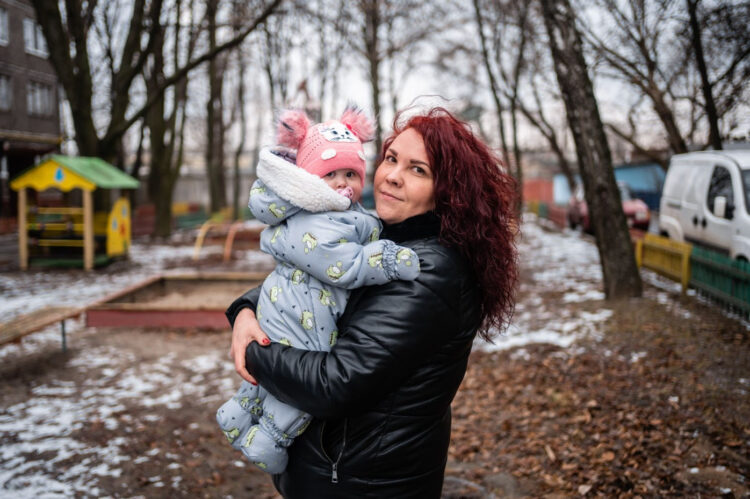
It’s collecting donations and driving supplies and vehicles from Europe while beating yourself for missing your seven-year-old’s bedtime – a child who understands everything, asks for nothing, and tries to comfort you even when you shout from sheer despair.
It’s bringing home-canned food to exhausted soldiers in nearby villages, forcibly taking their mud-caked uniforms to wash, then weeping over the blood-soaked fabric at home. You hope someone is doing the same for your son somewhere – not just feeding him but letting him feel mothered for a moment.
It’s watching your child hug a headstone when visiting their father’s grave, knowing his face exists only as phone wallpaper and bedtime stories now. The cemetery becomes the only place she feels his presence.
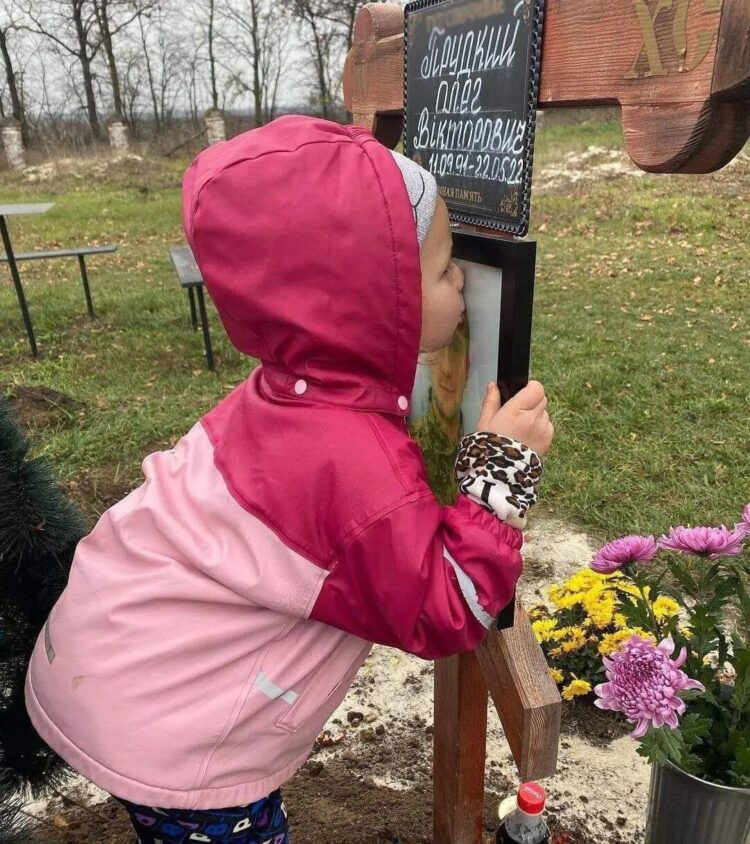
It’s refusing to believe doctors who say your critically injured teenage son won’t regain consciousness. You live in the ICU, pulling them from darkness toward light. You change his diapers and monitor breathing patterns exactly as you did when they were newborns. Different circumstances, same love.
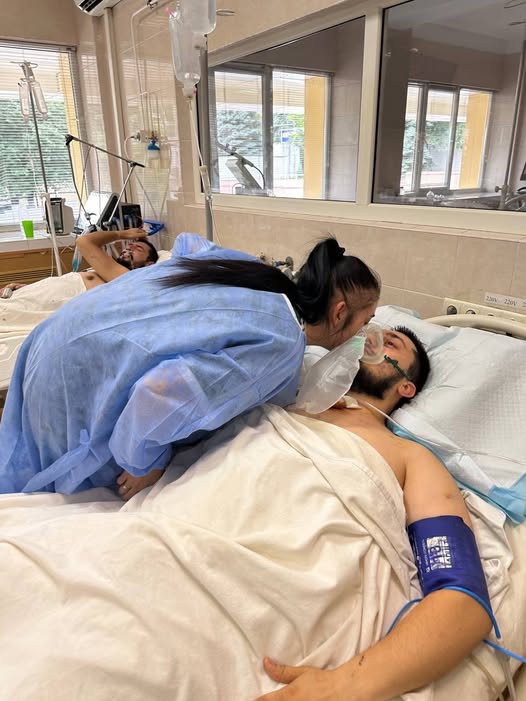
It’s scanning enemy Telegram channels for your captive son’s face among the hollow-eyed prisoners who look eerily alike. You don’t leave home for fear of missing news about prisoner exchanges. You talk constantly to someone who cannot hear you, hoping your voice transcends distance somehow.
It’s choosing schools based on bomb shelter quality rather than academics. It’s enrolling children in drone classes instead of dance lessons. It’s ordering medical ID bracelets for every family member.
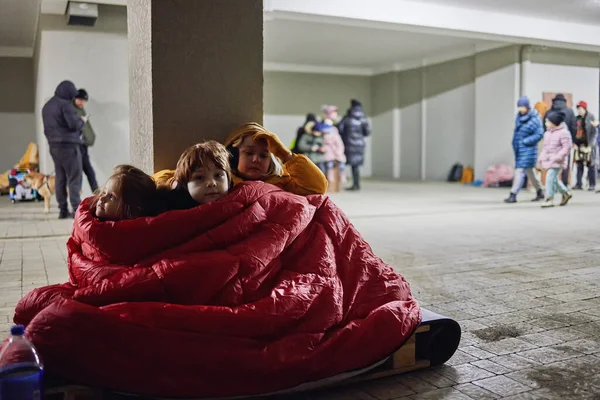
It’s packing emergency suitcases and stashing first-aid kits in every corner. It’s gifting your husband’s unit a drone for his birthday instead of a smartphone – a drone bearing your child’s name for protection.
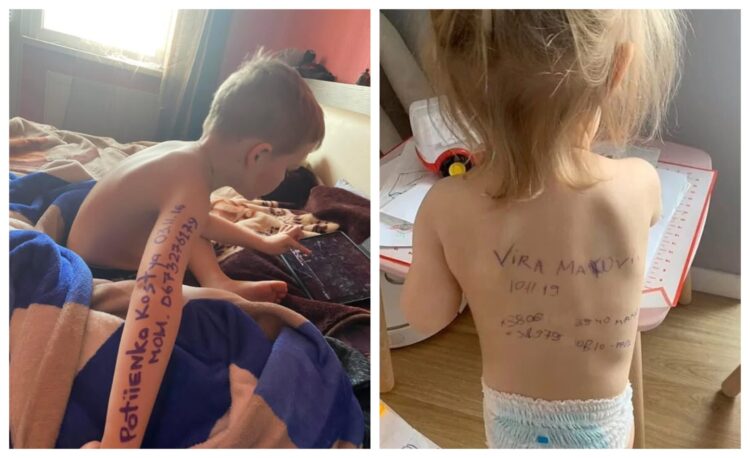
It’s living with a perpetually bleeding heart while somehow loving more fiercely than ever before. This love becomes your final possession when everything else has been taken. The one thing that remains truly yours.
Read also
-
Ukraine returns 8 children from Russian-occupied territories
-
Journalists unveil torture camp in Belarus set up for Ukrainians, including children
-
Ukraine repatriates seven deported children from Russia under Qatar mediation
-
Over 1700 children are considered missing in Ukraine due to war – Ministry of Internal Affairs



